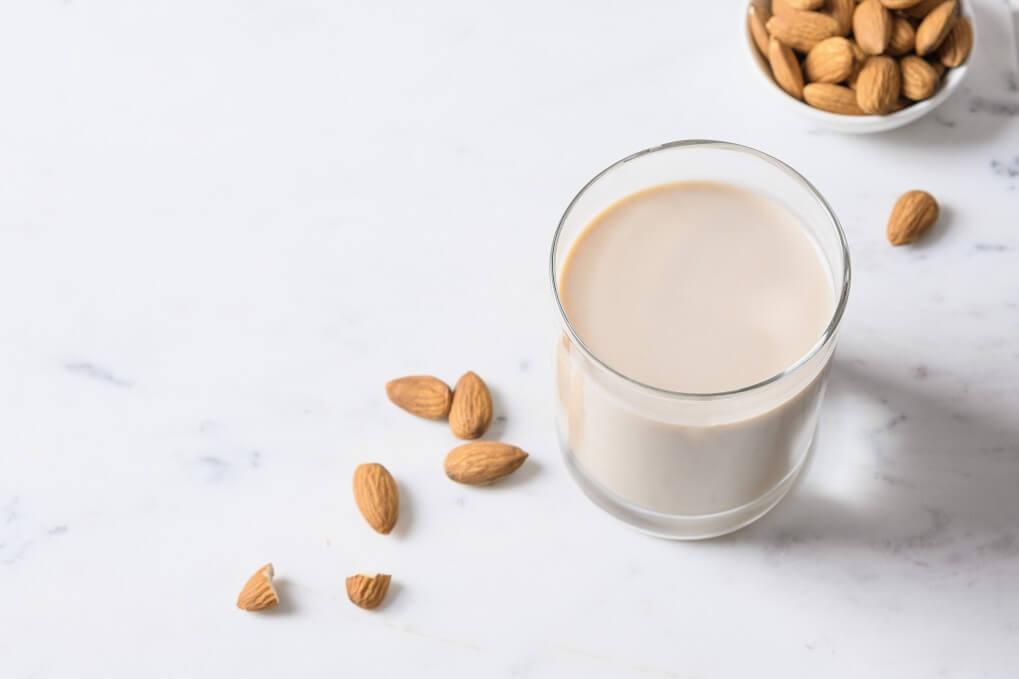If you’ve been diagnosed with diverticulitis, you know the foods you eat can aggravate your condition. There are also foods and nutrients like fiber you should eat more of.
Dairy products with high lactose can irritate your symptoms and make them worse.
But if you still want milk, you may be wondering if you can drink almond milk instead.
Yes, you can drink almond milk during or in between diverticulitis flareups.
Let’s look at what diverticulitis is and how you can drink almond milk with the condition.
What is Diverticulitis?
Diverticulitis is a gastrointestinal condition where parts of your colon extend out into pouches.
These pouches become inflamed or infected. The pouches can also be inflamed and infected at the same time.
It’s the inflammation and/or infection that leads to symptoms. Signs and symptoms of diverticulitis include:
- Abdominal pain that usually starts on the lower left side.
- Nausea
- Vomiting
- Diarrhea
- Fever
Some people can also experience painful gas and alternating constipation and diarrhea. Diverticulitis is linked to a low-fiber diet and processed foods, including simple carbs.

Is Diverticulitis Preventable?
There are some indications that eating a high-fiber diet can help prevent diverticulitis.
Over time, trying to pass hard stools may promote pouches in your colon. It’s also possible to develop diverticulitis with other related conditions, such as irritable bowel syndrome.
You can also try to avoid as many processed foods as possible.
However, in modern society, it can be challenging to eat a raw food diet. Many of the foods in grocery stores are processed to some degree. In fact, most are food products rather than raw foods.

Can I Drink Almond Milk With Diverticulitis?
If you’re experiencing signs of inflammation and diarrhea, you should avoid high-lactose dairy products.
You’ll also want to avoid other foods besides high-lactose dairy products. These include:
- Greasy foods
- Foods high in sugar
- Coffee, caffeinated sodas, and teas
- Sweetened drinks, such as smoothies
- Foods containing artificial sweeteners
However, you can drink almond milk when you have diverticulitis.
You may notice there are sweetened and unsweetened versions of almond milk.
Since you should avoid sugary and artificially-sweetened beverages, it’s best to get plain, unsweetened almond milk.
Stay away from varieties that contain chocolate or other flavors. Read the label of unsweetened versions to make sure there aren’t any artificial sweeteners like sorbitol.
Check out this video to learn more about almond milk.
Related: 10 Health Benefits of Almond Milk
Conclusion
By now you know you can drink almond milk with diverticulitis. In fact, it’s preferred over high-lactose dairy products.
You can also try switching to low or no-lactose dairy.
Related: Is Lactose-Free Milk Vegan?
That said, you want to avoid almond milks with sugars, flavors like chocolate, and artificial sweeteners.
Like lactose, these ingredients can cause flare-ups and aggravate your symptoms. You can make a permanent switch to almond milk as a substitute.
Or you can choose to switch to unsweetened almond milk while you’re experiencing cramping, bloating, painful gas, and diarrhea. However, be sure to stay away from other foods that trigger your condition.
